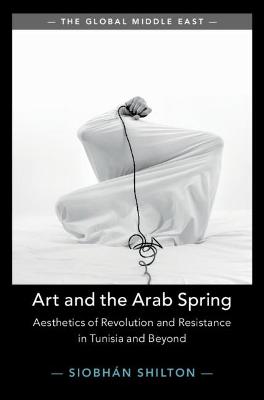The Global Middle East
1 total work
The revolutions that began to sweep across countries in North Africa and the Middle East in December 2010 – like other revolutions in diverse modern historical contexts – have often been articulated, internally and externally, in black and white terms of success or failure, liberation or constraint, for or against, friend or enemy. These internal and external clichés are perpetuated by what Jellel Gasteli has called 'icons of revolutionary exoticism'. Paying particular attention to works from the Tunisian Revolution of 2011, this book examines a diverse body of art including photography, sculpture, graffiti, performance, video and installation by over twenty-five artists. Examining how art can evoke the idea of revolution, Art and the Arab Spring reveals a new way of understanding these revolutions, their profound cultural impact, and of the meaning of the term 'revolution' itself.
